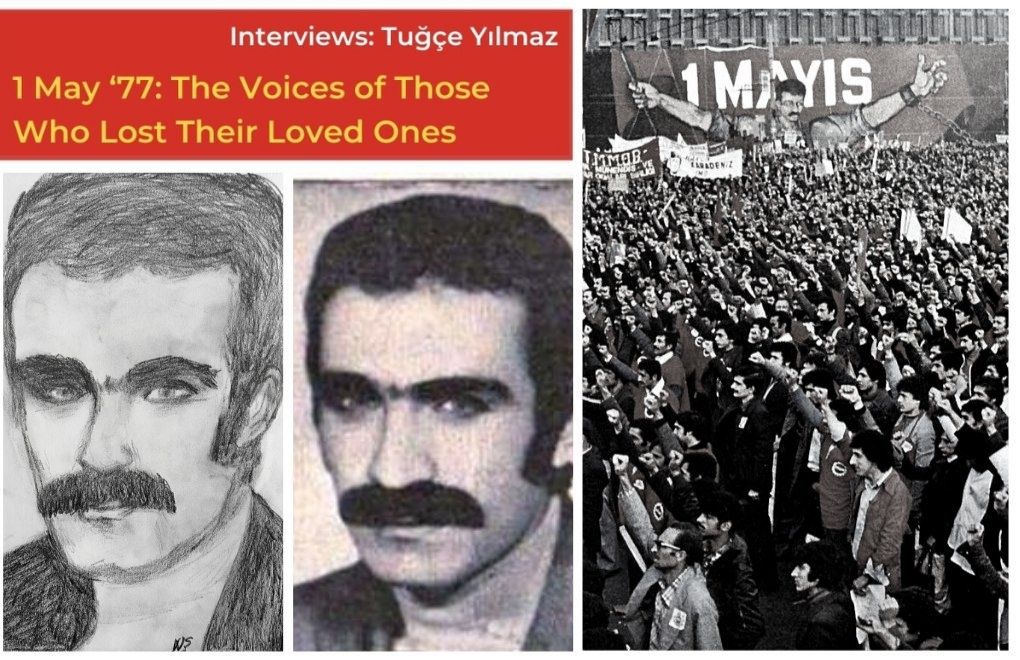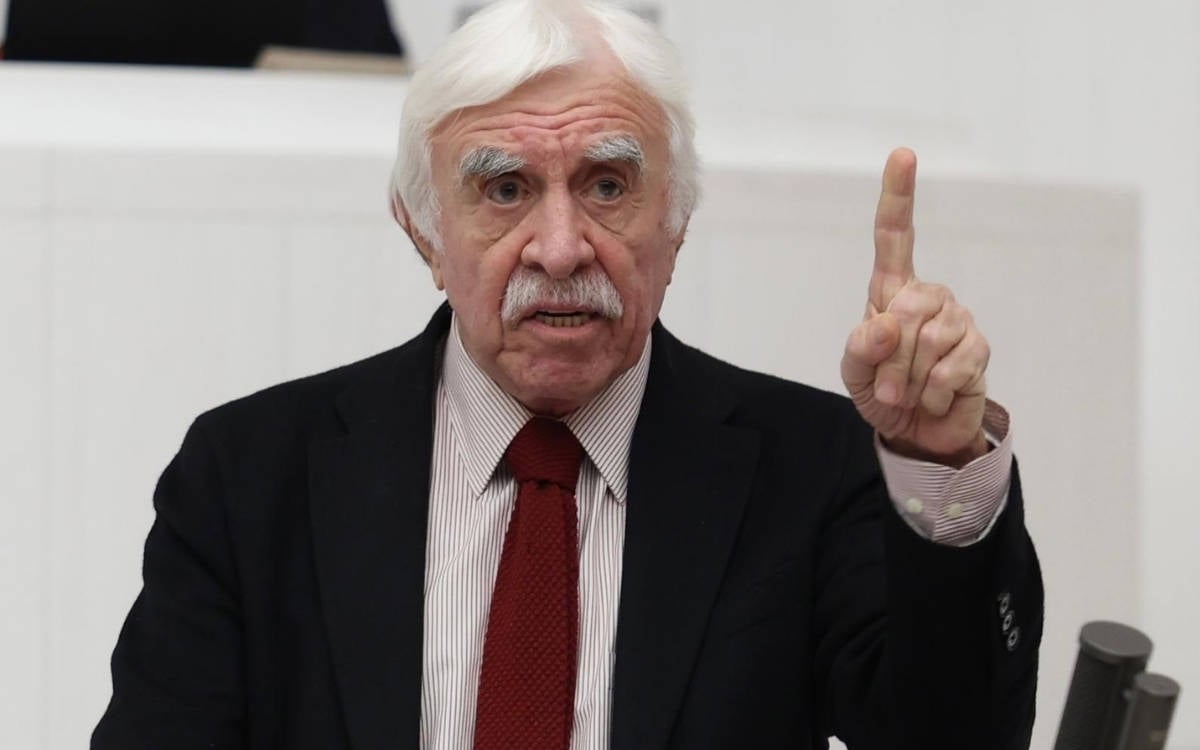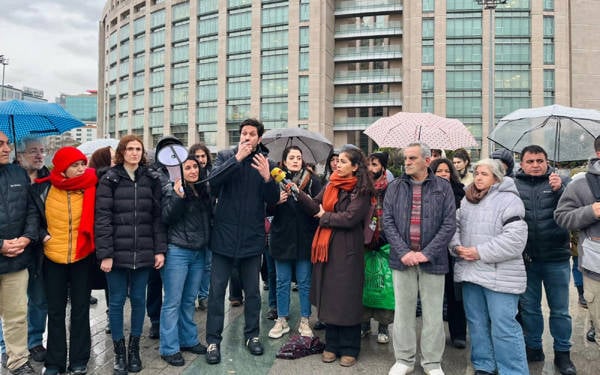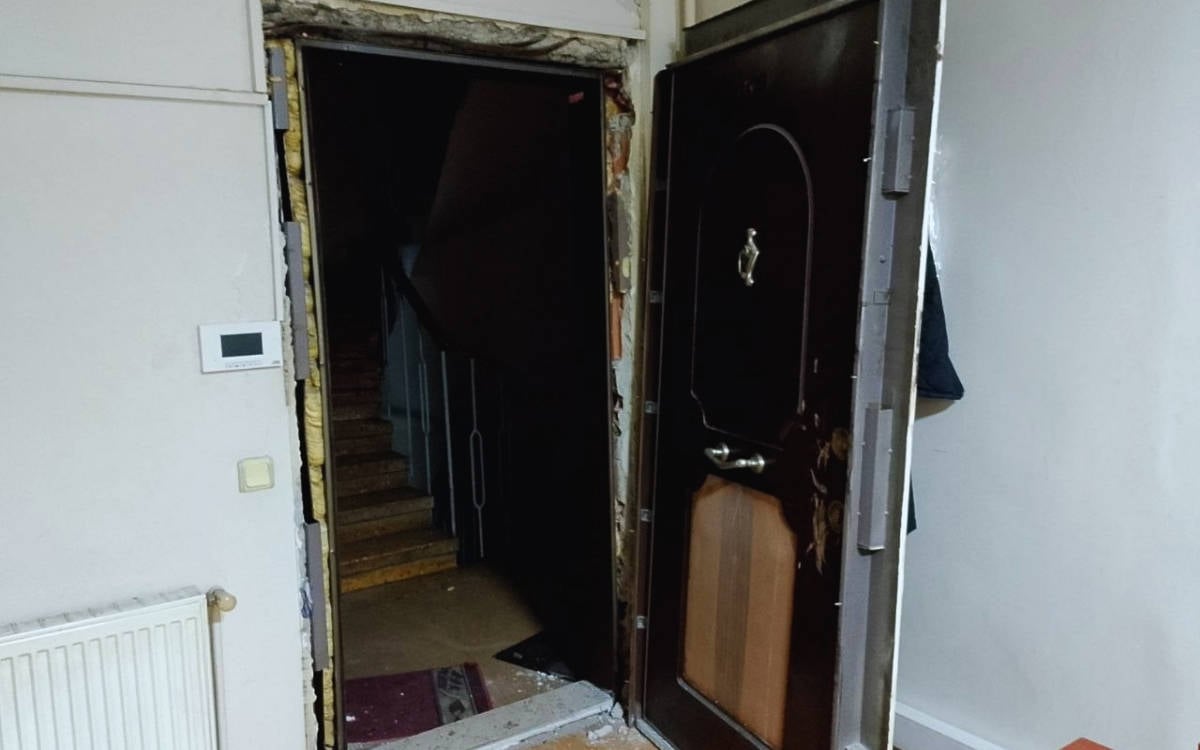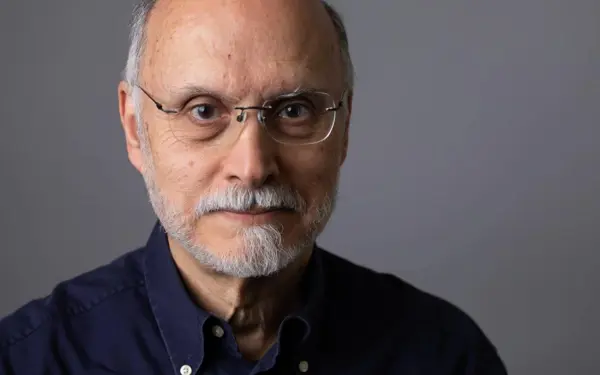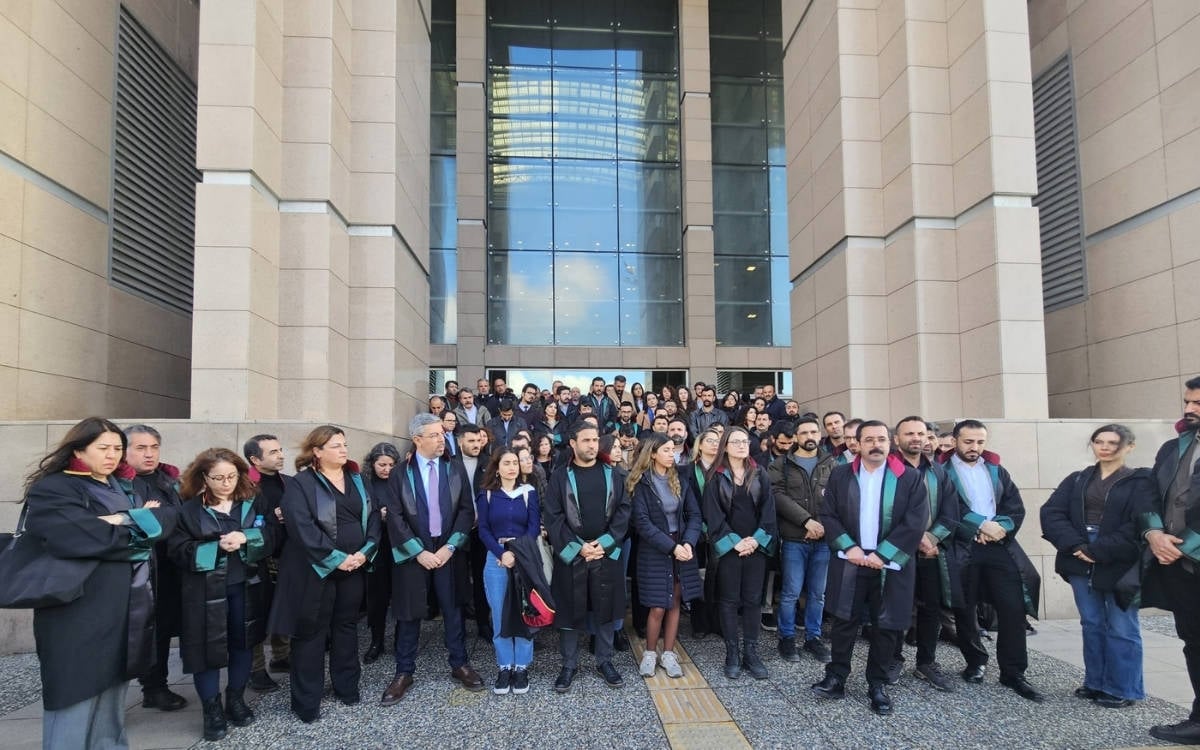Illustration: Neşe Erdilek
Click to read the article in Turkish
He danced the Erzurum "bar" very well. He was a funny person, a joker. He'd call everyone a "waste of space" and we'd all laugh. "Just ignore him, he's a waste of space," he'd say. He'd use it to tease people.
(Osman Eravcı, friend)
A few days later we heard the names of the friends who had died on the radio. Ömer's name was read out too. After that I went to the union and I learned they had buried Ömer in the Sefaköy Cemetery.
(Cihat Kaplan, friend)
Ömer Narman was born in the Narman district of Erzurum in 1946. He was one of five children—four girls and one boy—in a family of farmers. He went to the 18 Mart Primary School, the Narman Middle School and then graduated from the Erzurum Yavuz Selim Teaching College.
He taught in Doğubayazıt in the Ağrı region, and also in the village of Şehitler near Narman; his last teaching position was in Istanbul. He was a board member of the Istanbul branch of the Alliance and Solidarity Association of all Teachers (TÖB-DER).
He died in Taksim on 1 May 1977.
How did he die?
According to the autopsy report that we obtained from the Social History Research Foundation of Turkey (TÜSTAV), the cause of death was rib fractures caused by compression of the abdomen and chest, accompanied by mechanical asphyxia.
In other words, he died of suffocation resulting from a lack of oxygen. The report also states that the scratches on Ömer Narman's body may have been caused by falling or being pushed to the ground during the crush.
Reaching his relatives
It wasn't easy to find Ömer Narman's family and friends. With the help of Yıldırım Kaya, member of parliament for Ankara of the People's Republican Party (CHP), we learned that his last place of residence was Küçükçekmece in Istanbul.
With the help of Sami Evren, former president of the Confederation of Public Employees' Trade Unions (KESK) and a member of TÖB-DER in the period before its closure, we found Ömer Narman's sister, Çiğdem Narman, and his friend, Cihat Kaplan. Unfortunately health issues meant that it was not possible for us to speak to Ms. Narman.
Cihat Kaplan, former Regional Director of Social Services for Erzurum and legal advisor to the board of the Kocaeli branch of the Health Workers Union (SES), and Osman Eravcı, former member of the administration of Confederation of Progressive Trade Unions of Turkey (DİSK), spoke about their friend, Ömer Narman, who died at the age of 31.
Cihat Kaplan, friend, tells
I was a student in the 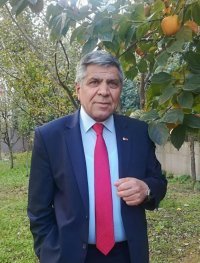 Turkish Department of the Atatürk Institute of Education in Fikirtepe, Istanbul.
Turkish Department of the Atatürk Institute of Education in Fikirtepe, Istanbul.
I was living in Gaziosmanpaşa with my older brother, Mehmet Kaplan. Mehmet was the DİSK representative for the Erka Brake Pad factory. A relative, Osman Eravcı, was a member of the DİSK administration. Through the two of them I met Ömer Narman in the Aksaray branch of TÖB-DER.
I met the late Talip Öztürk, president of TÖB-DER, and Kemal Türkler, the president of DİSK around the same time. I would see Ömer when I went to TÖB-DER in Aksaray in my free time, or at teachers' demonstrations. The last time we met, together with my brother Mehmet and Osman Eravcı, we decided what we would do for the First of May. They were going to join the demonstration on 1 May 1977 with their own friends.
That day
That day, I went to Aksaray early. Ömer and I both joined the TÖB-DER contingent and started walking from Aksaray; when we reached Taksim we were attacked. I remember the sound of the gunshots and the police sirens to this day. In the square, there were people who had been shot, injured, crushed. It was so sudden we didn't understand what had happened.
When everyone started running away, I fell to the ground. People ran over me. A few friends pulled me to the side, semi-conscious. My clothes were torn and I was covered in blood.
I couldn't walk. After coming to a little, I tried to walk home, and I reached Gaziosmanpaşa around 1am. Osman and my brother were there, they were injured too, but Ömer wasn't there.
Political persecution
Ömer was the only son, so his father, Lütfi, and his mother, Seher, really doted on him. In fact, when Ömer was born, they sacrificed a load of animals. Ömer's grandfather was martyred when his throat was slit during the liberation of Narman.
In 1968, after he got married, Ömer requested to be transferred away from Erzurum to escape the political persecution there, and he went to Istanbul. His wife refused to go to Istanbul, so they separated. His wife remarried but Ömer continued his life without ever remarrying.
When he arrived in Istanbul in 1968, he settled in the Sultan Murat neighbourhood in Sefaköy and started teaching at the Sefaköy Sultan Murat Primary School.
Final resting place
Ömer made important contributions to the teachers' movement. His whole life he was active in the Teachers' Union of Turkey [TÖS] and then in TÖB-DER. Until he was taken from us on 1 May 1977.
After 1 May 1977, he was buried in Istanbul. We had a grave made for him in the Sefaköy Cemetery so that his mother, Seher, knows where he lies.
Osman Eravcı, friend, tells
My older brother knew Ömer better than I did, but my brother has also passed away. Ömer was from the same part of the country as us. What I remember about him is limited, but I want him to be remembered, I don't want such a brilliant teacher to be forgotten.
What I remember most of Ömer's physical appearance is his eyes. Ömer sparkled. He had bright blue eyes. Auburn hair. He was handsome. He had a limp.
His father, Lütfi, would collect eggs from the villages to sell. He'd travel round the villages to sell what he could. But he raised his five children without relying on anyone else. He lost his only son, the apple of his eye, who he doted on, at the age of 31. (TY/APA/SD)
About Tuğçe YılmazJournalist, editor, researcher. "1 May 1977 The Voices of Those Who Lost Their Loved Ones / 1 May 1977 and Impunity" she was engaged in this dossier as a researcher, reporter, editor and writer. Her articles, interviews and reports are published in outlets such as bianet, BirGün Book, K24, 5Harfliler, Gazete Karınca and 1+1 Forum. She graduated from Ege University, Faculty of Literature Department of Philosophy. She was born in Ankara in 1991. |
 |
| This text was created and maintained with the financial support of the European Union provided under Etkiniz EU Programme. Its contents are the sole responsibility of "IPS Communication Foundation" and do not necessarily reflect the views of the European Union. |
CLICK - 1 May 1977 e-book is online
The ones who lost their lives on 1 May '77The ones whose loved ones we could talk to: Ahmet Gözükara (34, teacher), Ali Sidal (18, worker), Bayram Çıtak (37, teacher), Bayram Eyi (50, construction worker), Diran Nigiz (34, worker), Ercüment Gürkut (27, university student), Hacer İpek Saman (24, university student), Hamdi Toka (35, Seyyar Satıcı), Hasan Yıldırım (31, Uzel worker), Hikmet Özkürkçü (39, teacher), Hüseyin Kırkın (26, worker), Jale Yeşilnil (17, high school student), Kadir Balcı (35, salesperson), Kıymet Kocamış (Kadriye Duman, 25, hemşire), Kahraman Alsancak (29, Uzel worker), Kenan Çatak (30, teacher), Mahmut Atilla Özbelen (26, worker-university student), Mustafa Elmas (33, teacher), Mehmet Ali Genç (60, guard), Mürtezim Oltulu (42, worker), Nazan Ünaldı (19, university student), Nazmi Arı (26, police officer), Niyazi Darı (24, worker-university student), Ömer Narman (31, teacher), Rasim Elmas (41, cinema laborer), Sibel Açıkalın (18, university student), Ziya Baki (29, Uzel worker), The ones whose loved ones we did/could not talk to: Aleksandros Konteas (57, worker), Bayram Sürücü (worker), Garabet Akyan (54, worker), Hatice Altun (21), Leyla Altıparmak (19, hemşire), Meral Cebren Özkol (43, nurse), Mustafa Ertan (student), Ramazan Sarı (11, primary school student) The ones only the names of whom are known: Ali Yeşilgül, Mehmet Ali Kol, Özcan Gürkan, Tevfik Beysoy, Yücel Elbistanlı The one whose name is unknown: A 35-year-old man |
The voices of those who lost their loved ones: 1 May '77 and impunity
Political panorama of Turkey-1977
Film industry worker Rasim Elmas, 41, died in Taksim
Construction Worker Bayram Eyi, 50, died in Taksim
Teacher Bayram Çıtak, 37, died in Taksim
High School Student Jale Yeşilnil, 17, died in Taksim
Teacher Kenan Çatak, 31, died in Taksim
Teacher Ahmet Gözükara, 33, died in Taksim
Teacher Hikmet Özkürkçü, 39, died in Taksim
Student-laborer Niyazi Darı, 24, died in Taksim
University student Nazan Ünaldı, 19, died in Taksim
Teacher Ömer Narman, 31, died in Taksim
Laborer Ali Sidal, 18, died in Taksim
Counterperson Kadir Balcı, 35, died in Taksim
Student Hacer İpek Saman, 24, died in Taksim
Factory Worker Kahraman Alsancak, 29, died in Taksim
Laborer Hüseyin Kırkın, 23, died in Taksim
Student Ercüment Gürkut, 26, died in Taksim
Public order police officer Nazmi Arı, 26, died in Taksim
Laborer Mahmut Atilla Özbelen, 26, died in Taksim
Factory worker Hasan Yıldırım, 31, died in Taksim
Itinerant salesperson Hamdi Toka, 35, died in Taksim
Security Guard Mehmet Ali Genç, 60, died in Taksim
Factory Worker Ziya Baki, 30, Died in Taksim
Laborer Mürtezim Oltulu, 42, Died in Taksim
Teacher Mustafa Elmas, 33, Died in Taksim
Student Sibel Açıkalın, 18, died in Taksim
Laborer Diran Nigiz, 34, died in Taksim
1 May 1977 & Impunity
'The state is implicated in this crime, perpetrators must be put on trial'
'If you can't find the killers, you can't remove the stain'
'The perpetrators of the 1 May 1977 massacre got away with it'
Remembrance as a matter of dignity and the fight against impunity
Who is hiding the truth and why?





